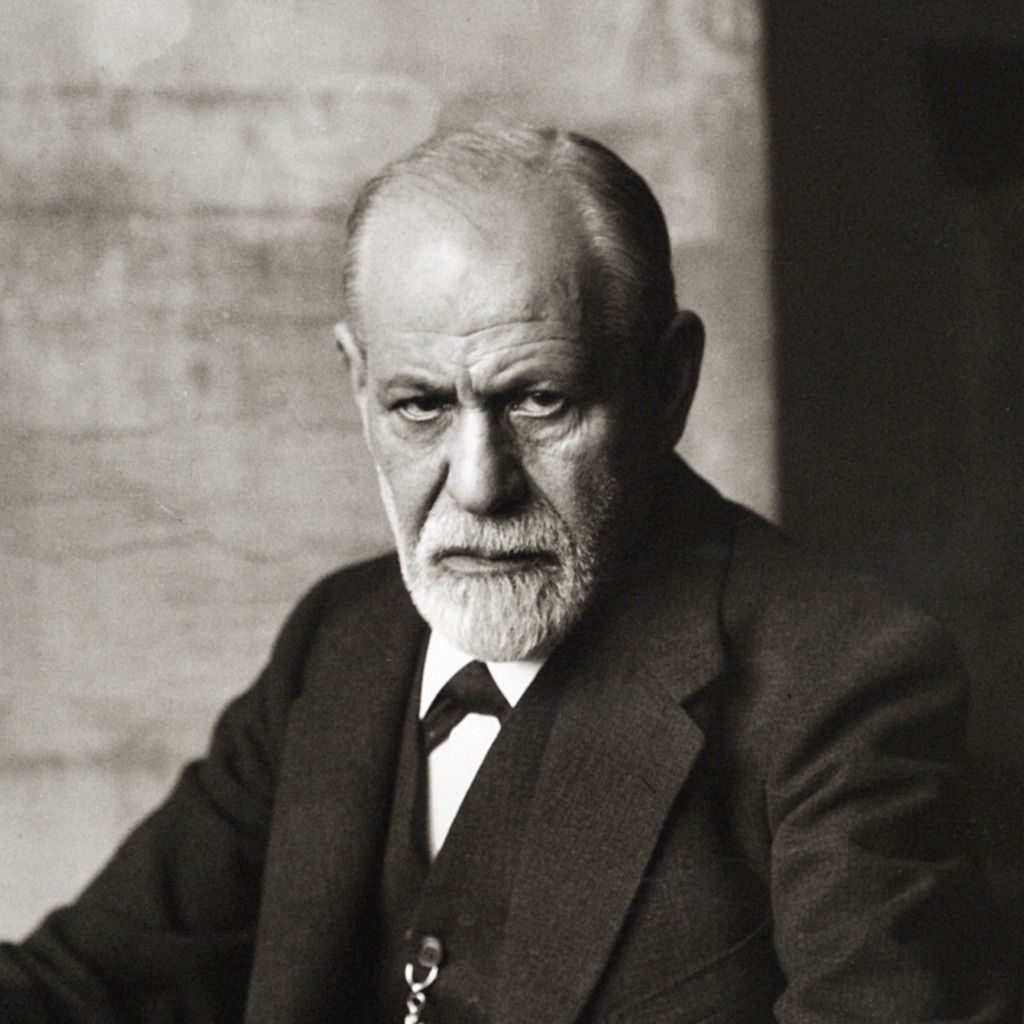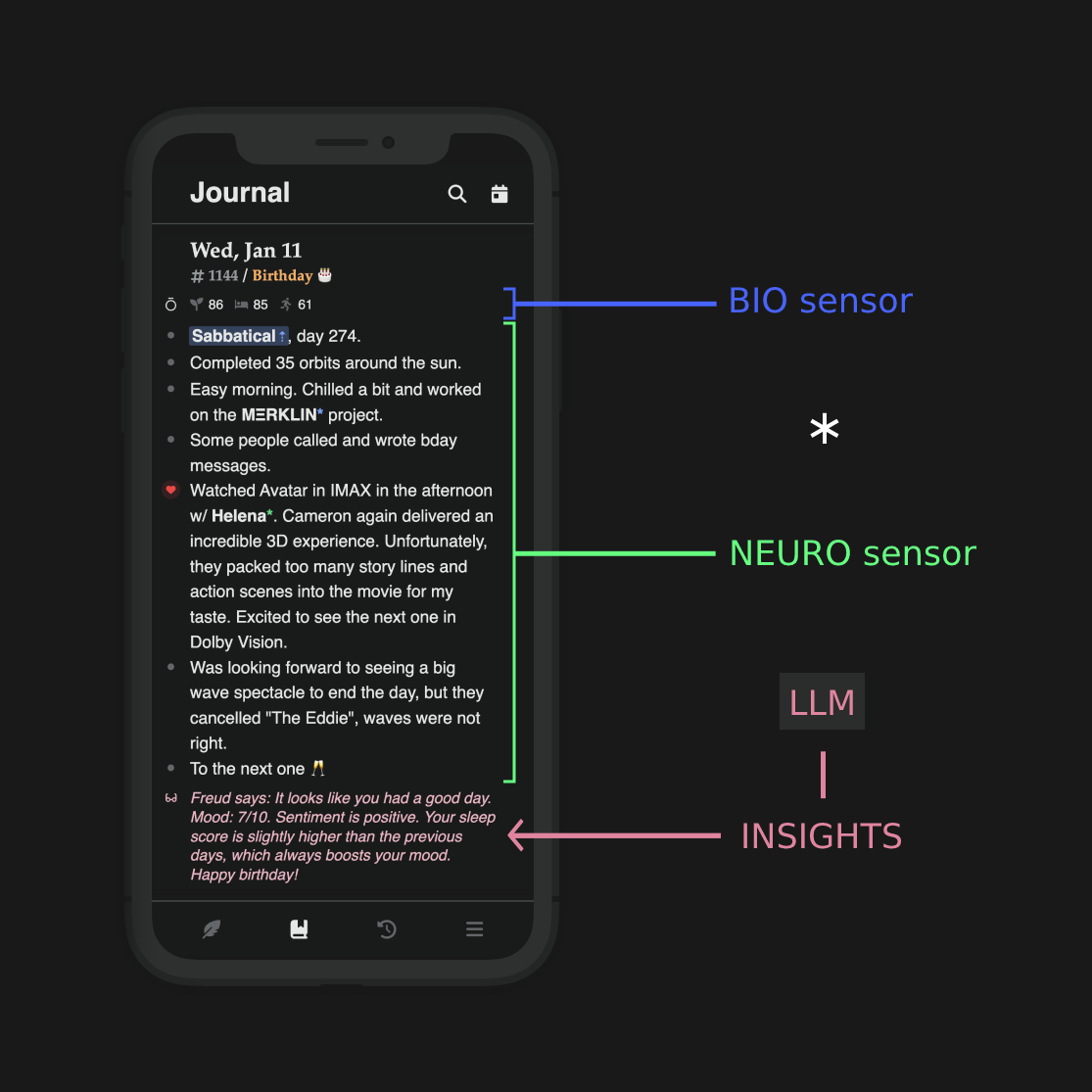Freud
Measuring the state of mind
Freud is our AI research effort to develop algorithms that can assess your state of mind solely by analyzing the entries in your micro journal.
Freud will help you recognize patterns in your behavior, mood, energy, etc., and act as your personal mental health and lifestyle assistant.
Freud, once ready, will be opt-in only and we'll always aim at full transparency with regards to data safety and privacy.

Background
The future is data-driven. In the physiological domain, we currently see a rapid shift from reactive medicine to digital diagnostics and preventive measures enabled by data collected from wearable devices like the Apple Watch and the Ōura Ring.
We expect a similar shift in mental health, from clinical psychology to lifestyle coaching, not only for the sake of mental well-being itself but also to increase performance and happiness.
The challenge arises from the complexity and peculiarity of the state of mind and from finding a way to access and evaluate it. We believe that a micro journal paired with sophisticated data analytics has the potential to provide at least some insights, and Freud is an experiment to field test this hypothesis.
Concept
A "Fitbit for the Mind"
With the recent advances in large Generative Pre-trained Transformer (GPT) models, spearheaded by OpenAI, Anthropic, and others, many interesting text processing applications become now feasible.
Here is an impression of how the first version of Freud will look like inside the Journalistic app together with Ōura bio sensor data and DaVinci senor fusion.

Roadmap
Insights
FI /1 – Sentiment, Mood, and Emotions
The first stage of Freud will be the extraction and analysis of quantifiable metrics that represent the state of our minds: sentiment, mood, and emotions.
Connecting these quantities to daily entries and plotting them over time will most likely yield valuable insights.
Status: under development
FI /2 – Correlation
With sentiment, mood, and emotions established, FI /2 will attempt to correlate them with events and interactions, i.a. #tags, @mentions, dreams, highlights, and so on.
Status: planning
FI /3 – Patterns
If correlation can be achieved, the logical next step is pattern analysis, aka. causal connections between multiple quantities, and over time.
Status: not started
FI /4 – Insights
In the last stage, algorithms developed in FI /1-3 are converted into actionable insights and lifestyle recommendations that will be integrated directly into the Journalistic app.
Status: not started
Search
FS /1 – Context
Open AI has demonstrated with their Embeddings API that it is possible to feed context into an LLM and let it answer questions about it. Applied to the entries in a journal this concept could somewhat yield a second (perfect) memory with superpowers.
Replacing conventional search with context-based LLM search should improve search quality by several orders of magnitude.
Status: under development
If you are interested in our research or want to contribute, get in touch at research@journalisticapp.com.
At the age of 73, Sigmund Freud began recording events of his day-to-day life on loose sheets he kept on his desk. Over the next ten years, until his death in 1939, he kept notes that seemed of special importance to him.
